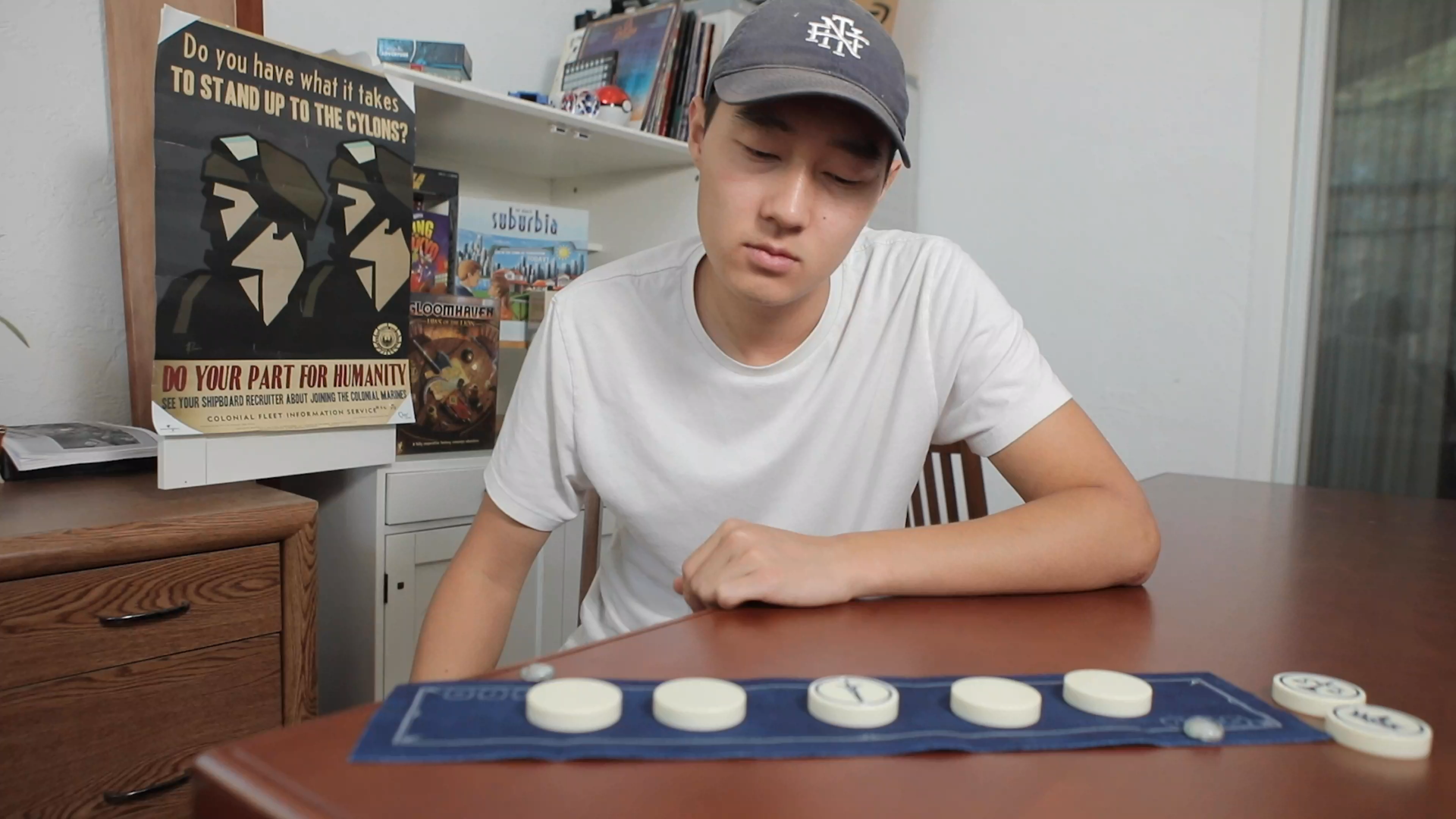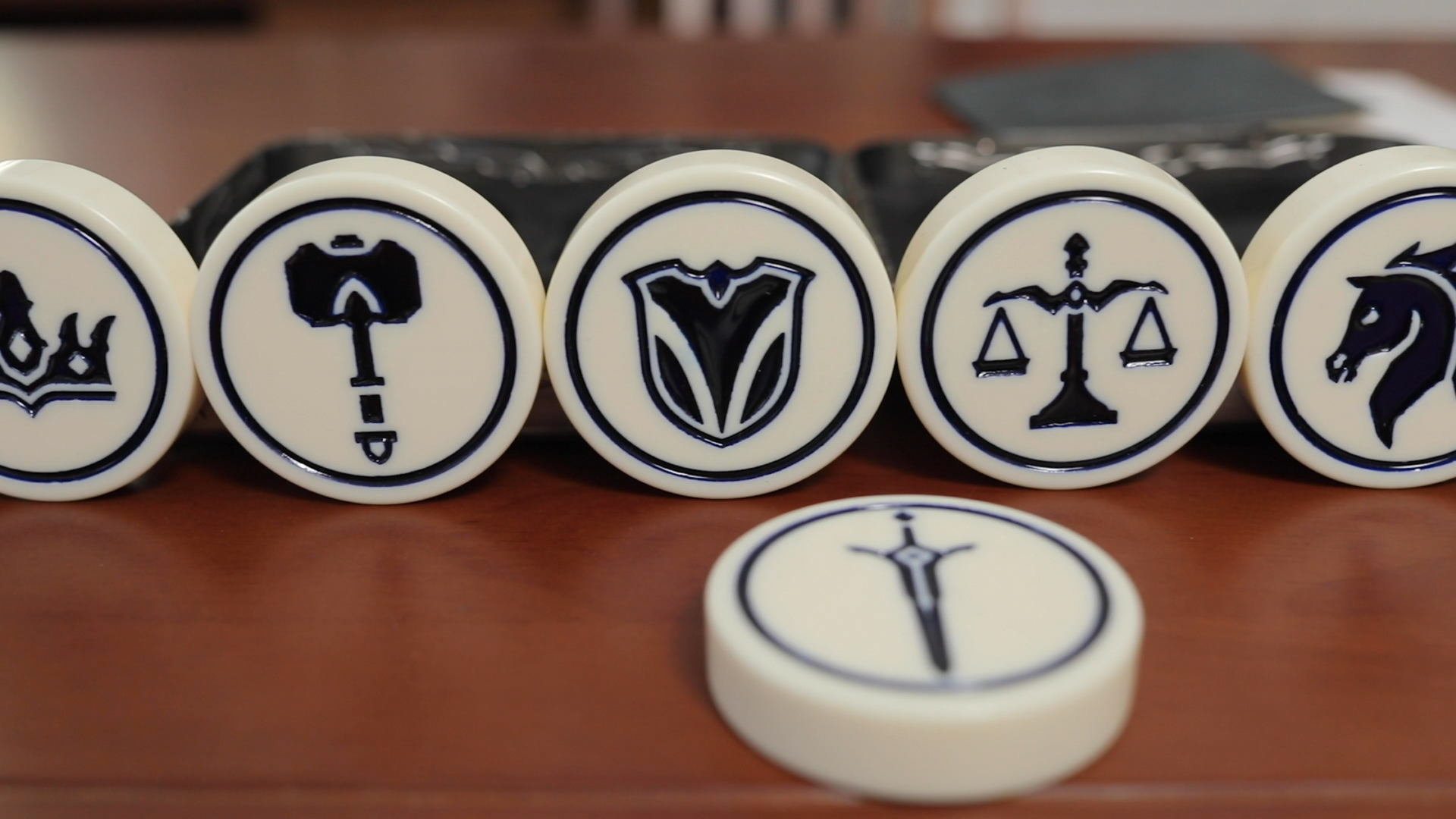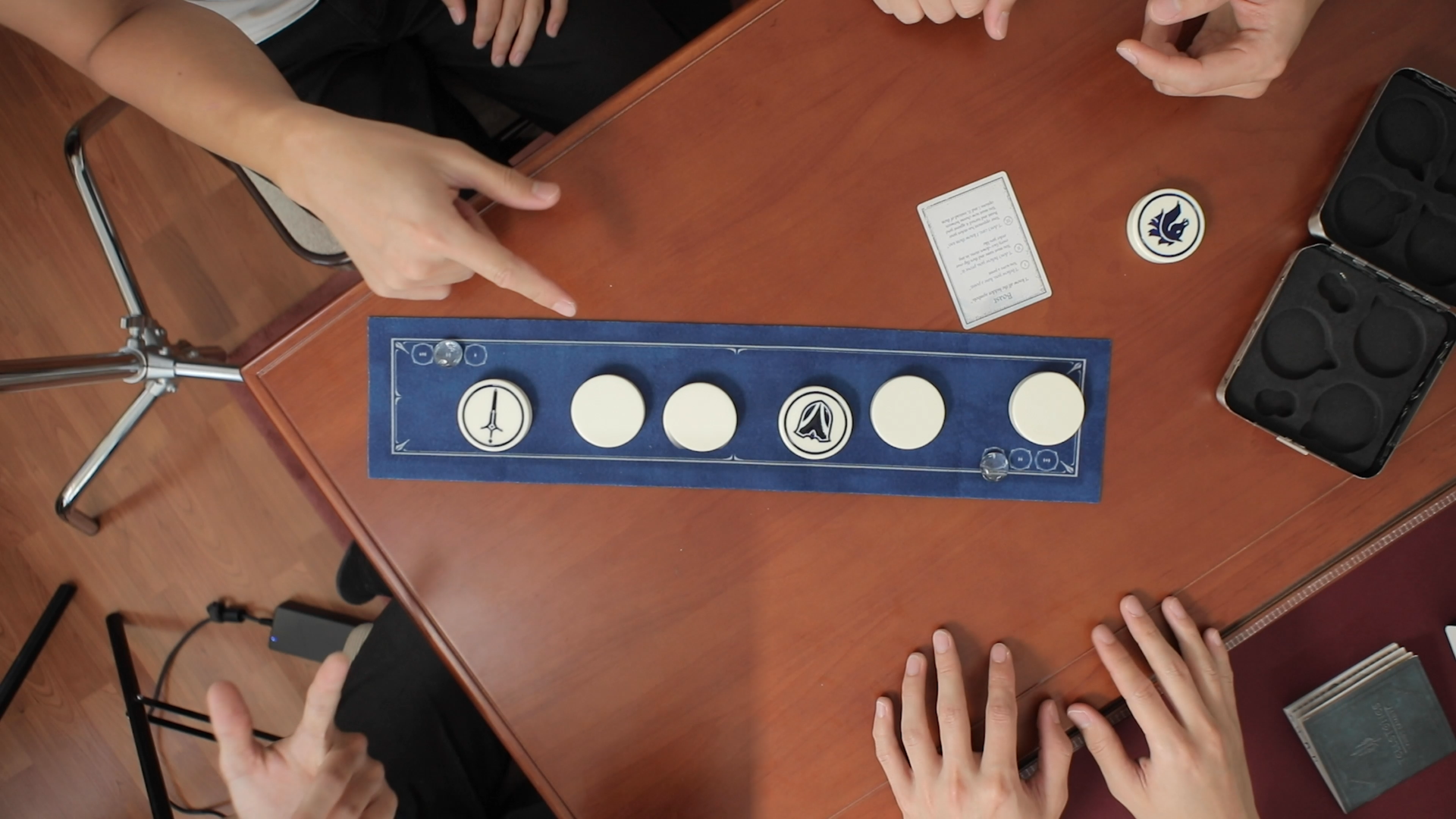Tellstones: King’s Gambit Review
An unmemorable game, despite being all about memory.
2 players are locked in a memorization duel, manipulating 7 stones as they memorize and bluff the placement of them. 10-20 minutes.
Video published October 4th, 2020

Raw memory and bluffing.

Beautiful, heavy 'stones' to swap and flip.

4 player compatible in the 2v2 mode.
Overview & How to Play
Tellstones: King’s Gambit is a game that is thematically played in the mythical land of Runeterra from Riot Games, namely from the video game universe of League of Legends.
In that, this memorization game involving circular stones is extremely simple. You want to hit 3 points to win. On a turn, you’re allowed to do one of 6 actions.
The first 3 allow you to tell your opponent do something, like place a stone to bring it into the game, turn a stone facedown, or swap any 2 stones. The 4th action lets you peek at a facedown stone.
Importantly, the last 2 actions can give you points: the Challenge and Boast. To Challenge, you force the opponent to name one of the facedown stones. If they succeed they score a point, but if they fail you get the point. When you Boast, you claim that you know ALL of the facedown stones, and successfully doing so wins you the game. However, your opponent can respond in one of 3 ways: believing you, in which case you score a point, doubting you, where you have to prove you know everything, or stealing the Boast for themselves, in which case you can only respond to their boast with one of the first two options: believing them or doubting them.
Pros
Tellstones’ components certainly make a very strong impression. The box is made out of metal with nice engravings, with a blue felt mat and marble point trackers to keep track of points. The actual ‘tell’ stones are made out of a really nice plastic that is weighty, being nice to pick up, touch, and of course rotate around. The symbols are actually engraved into the stones which is a really cool detail.
One thing is for sure while playing: this is a simple game where it’s really easy to envision the people of the medieval, magical land of Runeterra playing. All the actions are super basic; any ol’ military grunt can learn the game, plus there’s really easy to follow player aids. But before we go any further into gameplay, let’s talk about the rulebook’s Unwritten Rules (a little ironic yes), which are absolutely core to the Tellstones experience.
The Unwritten Rules is basically the fact that you can actually say and do whatever you want during gameplay, as long as you’re still adhering to the actual game, so this means throwing off your opponent’s memorization in any creative way possible. There is nuance in the actions where you TELL your opponent to do something because you can misdirect them by saying one thing, yet pointing to another. This allows for great offensive or defensive strategy, and makes Tellstones take full advantage of the physicality of playing in-person.
These rules compound onto the high decisionmaking when playing. The fact that the game starts with one stone, and you’re building the board out allows for some very open ended decisionmaking. There’s a lot of choice in thinking which 2 stones to swap, and where to swap them, since there’s no restrictions on selecting or swapping.
The Boast action also has a ‘counter’ opportunity, where when someone tries to announce they know all the stones, you can claim the same. Now you can actually just win the game! This makes the game-ending Boast action really nuanced, where you don’t want to give up the game via Boasting at the wrong time.
The favored to play for some might be the 2v2 variant, where there’s less tension in memorizing facedown stones, since there’s another brain on your side. There’s lots of room for fun teamwork here as you can pick your teammate to peek at stones during your turn, and of course choosing which stones you’re going to announce when Boasting, as you’ll split that burden 50/50. But probably the best part about this team play is that there’s so much more banter that comes up with more tongues in the mix, as players distract both of their opponents and sometimes, accidentally their own teammates.
Cons
Problems start to come in with Tellstones with replayability, where the 6 stones are always the same, and the symbols don’t actually cause different functionality. They’re just a thing to memorize. The game mat is always just empty at the beginning and gets slowly filled up by players.
The biggest concern with Tellstones is that it is memorization for pure memory’s sake. While you can do a lot of dumb things to distract your opponent here, at the end of the day, the game is just won through better memorization. It doesn’t feel like playing a fully fledged game with actual mechanisms, decisions, and strategies.
There’s a high skill ceiling, but is it worth playing this game that much to get better? Memorization is a weird skill that most games don’t use as a mechanic at all beyond just memorizing the rules of a game, and so when it’s the main focal point in Tellstones, all that memorization can mentally exhaust people. The thing is, Tellstones has an odd payout for how much concentration it requires. Sure, you get a huge rush during the cool boasting phase, but other than that there’s not much fun coming out of the constant memorization—there’s no cool combos, and the game always immediately ends after the fun boasting phase.
And while Tellstones is undoubtedly a great looking game, it is overpriced! If we were judging this purely on gameplay and not price, it would be a 5/10. You can even just play this game with 6 playing cards, if you want to judge if the gameplay is for you.














